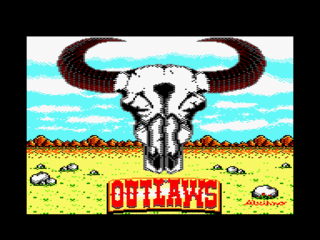A new version of the Z88dk development environment for Z80 based computer (e.g. Amstrad CPC, Cambridge Z88, MSX, Sinclair ZX 81, Sinclair ZX Spectrum, etc.) was released. The release is a transition release on the way to v2.0 which aims on using both, the SDCC compiler and the Small-C compiler, to combine their advantages, which leads to much faster and smaller output binaries. You can choose between using the Small-C compiler with the old and the new C library or use the SDCC compiler with the new C library. The new C library also introduces full C standard compliance to Z88dk.
The newest version can be downloaded from the Z88dk homepage. The source code is available on GitHub.
Changelog:
Package:
- The win32 and osx packages are complete and now include the zsdcc & zsdcpp binaries. zsdcc is z88dk’s customization of the sdcc compiler. Other users can compile zsdcc from source.
- A VS2015 solution file is now available in z88dk/win32 for building all z88dk binaries except zsdcc & zsdcpp. Instructions for building zsdcc & zsdcpp can be found in the install instructions link above.
ZCC – Compiler Front End:
- M4 has been added as an optional macro pre-processor. Any filename ending with extension “.m4” will automatically be passed through M4 and its output written to the original source directory with the “.m4” extension stripped prior to further processing. The intention is to allow source files like “foo.c.m4”, “foo.asm.m4”, “foo.h.m4” and so on to be processed by M4 and then that result to be processed further according to the remaining file extension.
- In conjunction with the above, a collection of useful M4 macros has been started in “z88dk.m4” that can be included in any “.m4” file processed by zcc. Currently macros implementing for-loops and foreach-loops are defined.
- List files ending with extension “.lst” can be used to specify a list of source files for the current compile, one filename per line. The list file is specified on the compile line with prefix @ as in “@foo.lst”. List files can contain any source files of any type understood by zcc and individual lines can be commented out with a leading semicolon. Paths of files listed in list files can be made relative to the list file itself (default) or relative to the directory where zcc was invoked (–listcwd). List files can list other list files, identified with leading ‘@’.
- zcc now processes all files it is given to the final output file type specified. For example, with “-E” specified, all listed .c files will be run through the C pre-processor individually and all output copied to the output directory. Previous to this, only the first file listed was processed unless a binary was being built.
- -v gives more information on what steps zcc takes to process each source file.
- -x now builds a library out of the source files listed.
- -c by itself will generate individual object files for each input source file. However, if -c is coupled with an output filename as in “-o name”, a single consolidated object file will now be built instead of individual ones. The intention is to provide a means to generate identical code in separate compiles by allowing this single object file to be specified on different compile lines.
- Better error reporting for source files with unrecognized types.
- Better parsing for compile line pragmas; pragma integer parameters can now be in decimal, hexadecimal or octal.
- -pragma-include added to allow a list of compile time pragmas to be read from a file as in “-pragma-include:zpragma.inc”. This way projects can consolidate pragmas in one location; this is especially important for the new c library which uses pragmas extensively to customize the crt.
- -pragma-export added, is similar to -pragma-define but the assembly label defined as a constant on the compile line is made public so that its value is visible across all source files.
- –list will generate “.lis” files for each source file in a compile to a binary. The “.lis” file is an assembly listing of source prior to input to the linker.
- –c-code-in-asm causes C code to be interspersed as comments in any generated assembly listing associated with C source files.
- “.s” files are now understood by zcc to be asz80-syntax assembly language source files. This allows sdcc project files written in assembly language to be assembled by z88dk. asz80 mnemonics are non-standard so zcc attempts to translate to standard zilog mnemonics before assembling. You can see the translation to standard zilog form by using “-a” on a compile line. This is still a work-in-progress feature.
- –no-crt allows compiles to proceed without using the library’s supplied crt for a target. The first file listed on a compile line will stand in as the crt and will be responsible for initialization and setting up the memory map.
- Temporary files are always created in the temp directory. The option “-notemp” has been removed.
- Library and include search paths have been fixed to honour the order specified on the compile line. This allows the user to override library functions when desired.
- Source files are now processed from their original location so that includes can be properly resolved. Previously this was only done for .c files but this now applies to other file types.
- clang/llvm compilation is in an experimental state.
Continue reading »
 If you are not familiar with development for the Amstrad CPC, you can have a look at the CPCtelera game development kit, the great programming tutorials on CPCMania, the CPCrslib programming library or cpcitor’s development toolchain. As always you can find help in the CPCWiki forums.
If you are not familiar with development for the Amstrad CPC, you can have a look at the CPCtelera game development kit, the great programming tutorials on CPCMania, the CPCrslib programming library or cpcitor’s development toolchain. As always you can find help in the CPCWiki forums.
